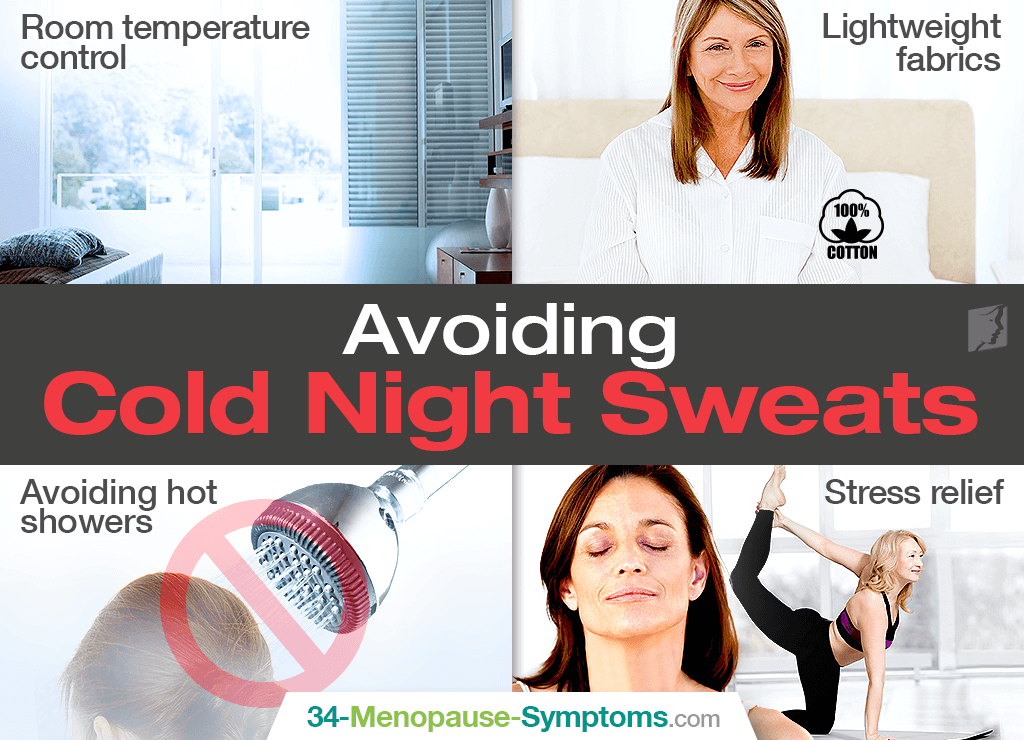Night sweats are a common symptom of menopause that can cause a woman to wake up feeling chilled to the bone with her body, clothes, and sheets drenched in sweat. Because they cause a sudden chill and abnormal sweating, some women refer to them as cold night sweats.
Continue reading to learn more about cold sweats at night, including avoidance and treatment options, to finally get a restful night's sleep.
About Night Sweats and Cold Night Sweats
Night sweats are nocturnal hot flashes, which are abrupt sensations of heat that flush the body unexpectedly.
Because of fluctuating levels of reproductive hormones, including estrogen, the hypothalamus — the part of the brain that regulates temperature — mistakenly believes the body is too hot.
This brief burst of perceived heat can cause symptoms of profuse sweating, an increased heart rate, and flushing.
Because the evaporation of the sweat can leave a woman feeling chilly and clammy after the episode, many women refer to the incident as a cold night sweat.
Preventing Nocturnal Sweating Episodes
Fortunately, cold night sweats are relatively simple to manage with a few lifestyle changes. These can include:
Controlling room temperature
Since excessive heat can trigger a night sweat, and subsequently, what feel like a cold sweat in sleep, keeping a window open or a fan running during the night can help a woman cut down on the frequency and severity of her night sweats.
Using lightweight fabrics
Sleep under thin, breathable sheets that are made from moisture-wicking fabrics, allowing proper air circulation. Also, try wearing lightweight pajamas. Synthetic fibers like polyester and spandex make for poor options since they trap sweat against the skin, leaving the body cold and soaked after nocturnal hot flashes.
Avoiding hot showers
Many times, hot showers right before bedtime can trigger an episode of night sweats and leave you feeling cold and clammy afterwards. It is best to take a lukewarm shower in order to avoid this potential trigger or to shower earlier in the day if your episodes are consistently disrupting your sleep schedule.
Relieving any pent-up stress
Because night sweats and other symptoms of menopause can be triggered by stress, women who suffer from cold sweats during sleep should practice stress-relief techniques before bedtime. These can include deep breathing exercises, meditation, yoga, visualization practices, etc.
More Information
The most effective way to be rid of all menopause symptoms is by treating the underlying cause. For many perimenopausal women, this would most likely be hormonal imbalance.
Click on the following link to read about natural and effective treatments for night sweats so that you can get the beauty sleep you deserve.
Sources
- Mayo Clinic. (2018). Night sweats: Causes. retrieved January 24, 2019, from https://www.mayoclinic.org/symptoms/night-sweats/basics/definition/sym-20050768
- NHS. (2017). Night sweats. Retrieved January 24, 2019, from https://www.nhs.uk/conditions/night-sweats/




